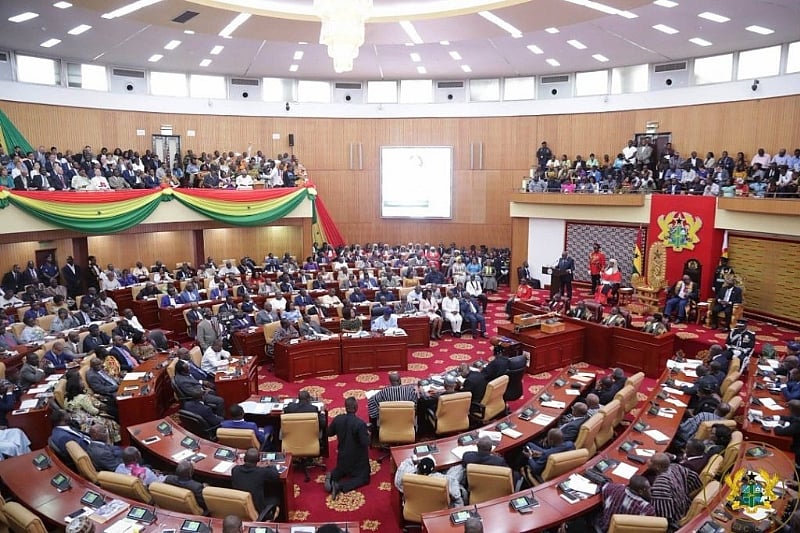The Revenue Administration Amendment Bill 2025, recently passed by Parliament, signifies a notable shift in Ghana’s revenue allocation strategy, primarily concerning the funds designated for tax refunds. The core modification lies in the reduction of the proportion of total revenue channeled to the Ghana Revenue Authority (GRA) General Refund Account. Previously, a larger percentage of the revenue was earmarked for this purpose, creating a potential strain on the national budget. The amended bill now empowers the Minister for Finance to cap the allocation to the refund account at a maximum of 6% of the total revenue collected under the Act and other relevant legislation. This adjustment marks a departure from the previous practice, potentially freeing up a substantial amount of resources for other governmental priorities. The new legislation seeks to strike a balance between ensuring sufficient funds for legitimate tax refunds and optimizing the utilization of public resources for broader national development initiatives.
This amendment is projected to yield substantial cost savings for the government, estimated at approximately GHC 3.8 billion. This significant sum represents a considerable injection of funds that can be redirected towards other critical areas such as infrastructure development, social welfare programs, education, and healthcare. The anticipated savings underscore the potential financial impact of seemingly minor adjustments in revenue allocation policies. By streamlining the refund process and capping the allocation, the government aims to create greater fiscal flexibility and efficiency. This financial maneuver allows for better management of public funds, enabling the government to prioritize spending in areas that can stimulate economic growth and improve the overall well-being of the citizenry. The freed-up resources can be deployed strategically to address pressing national needs and further the country’s development agenda.
The rationale behind this amendment is rooted in the principle of fiscal prudence and efficient resource management. The government’s objective is to maximize the impact of collected revenue by ensuring that every cedi is utilized optimally. By setting a limit on the refund allocation, the government aims to prevent excessive or unnecessary refunds while still fulfilling its obligation to taxpayers entitled to legitimate reimbursements. This measured approach allows for a more balanced distribution of resources, ensuring that both refund obligations and other crucial governmental functions are adequately funded. The amended bill effectively streamlines the allocation process, promoting transparency and accountability in the management of public finances.
The implementation of this amendment necessitates careful consideration of its potential impact on taxpayers and the GRA. While the primary aim is to achieve cost savings, it is crucial to ensure that legitimate refund claims are processed efficiently and without undue delays. The GRA’s capacity to manage the refund process within the new allocation framework needs to be strengthened to avoid creating backlogs or causing inconvenience to taxpayers. Clear guidelines and procedures must be established to ensure a smooth and transparent refund process. This involves enhancing the GRA’s operational efficiency, streamlining its procedures, and investing in the necessary technological infrastructure to handle the anticipated volume of refund requests.
The success of the amended legislation hinges on the GRA’s ability to uphold its mandate of efficient revenue management. While the allocation to the refund account has been reduced, the GRA must continue to prioritize timely and accurate processing of refund applications. This requires maintaining a high level of professionalism, transparency, and accountability in its operations. The GRA plays a critical role in ensuring the government’s revenue goals are met while simultaneously upholding the rights of taxpayers to receive legitimate refunds. Balancing these two imperatives requires a robust and efficient system capable of handling the complexities of tax administration within the new budgetary constraints.
In conclusion, the Revenue Administration Amendment Bill 2025 signifies a significant stride toward enhancing the efficiency of Ghana’s public financial management. By adjusting the allocation to the GRA General Refund Account, the government aims to achieve substantial cost savings while ensuring the integrity of the tax refund process. The projected savings of GHC 3.8 billion offer an opportunity to invest in critical sectors and accelerate national development. However, effective implementation of the amended bill requires a concerted effort to strengthen the GRA’s capacity, streamline refund procedures, and maintain a balance between fiscal prudence and taxpayer rights. The success of this initiative will ultimately depend on the government’s ability to manage public funds responsibly and the GRA’s effectiveness in upholding its mandate within the new framework. This legislative change underscores the government’s commitment to fiscal responsibility and optimizing the use of public resources for the benefit of all Ghanaians.


